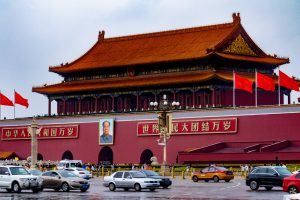NEW DEVELOPMENT
Since the internet has come into existence, this is the first time that countries across the world joined hands in order to formulate the codified laws in order to regulate the functioning of Facebook and Twitter. Furthermore, these platforms from the inception itself have provided the mode of expression to the people on various topics and it became a handy doorway to access the information or the day-to-day happenings of the world.
These rules are to be specified under the Information Technology (Intermediary Guidelines and Digital Media Ethics Code) Rules, 2021, where the users who are spreading objectional contents will also be held accountable or their account will be ceased from operating while removing any misapprehension about curbing creativity and freedom of expression. These rules are framed under the collaboration of the Ministry of Electronics and Information Technology and the Ministry of Information and Broadcasting, who has framed them as per the powers provided under Section 87(2) of Information Technology Act, 2000 and Information Technology (Intermediary Guidelines) Rules, 2011.
India is considered to be the largest companies for Facebook and Whatsapp and most of the revenue is generated is not provided to local intermediary news providers and is kept with the major powers over cyberspace. Cyberspace is a place where two or more software are connected in a faster, flexible and far-reaching communication system, which has evolved over a period of time and has become a part of our day-to-day life. Social media which was developed in the early 21st century was, back then, a means to connect people and other groups with one another from distant places, thus erasing the boundaries of communication. Now, everything which is in existence, either natural or man-made, has to be in balance and in consonance with other factors affecting the same issue, otherwise, any sort of imbalance creates a disruption in the society, which requires external control, it fails to resurrect the previous situation.
In the field of cyberspace, as soon as it started to expand its roots to various other areas, the authorities came up with the Information Technology Act, 2000, where regulation was put in place in order to organise activities on the internet and e-commerce. It added a new pillar in the regulation of conduct in the society and in order to minimise the rate of deviance in the country and introduced new concepts in other principal statutes, making them more accommodative.
But, with the evolution of technology, new platforms started to emerge which created a “subconscious chaos”, making the integration of people and society more fragile. The internet focuses on the impact that the content creates on the minds of the people and provides the sort of information that a user wants to get access to.
Social media works on the amount of time spent by the users on the specified platforms, and the advertisement distributors gets paid for the advertisements and the remaining goes to the providers. Last few years, countries have witnessed an increase in the disruption caused by digital platforms, such as mob lynching, fake news and information, online stalking, fraud, etc., for which there have been no specific means to curb the deviance in the virtual space.
Furthermore, when the “Big Social Tech” were asked clearance about this upsurging chaos in the virtual world, they had been ever-ready with the excuse that as their headquarters are situated in some other countries so they are following the rules and regulations of that country but with these rules coming into the picture, while handling the matters of India, they will be obliged to follow laws as per this country.
The emerging virtual interference in the farmers’ protests resulted in the creation of an illusionary upsurge in the social media platform among various users in the name of practising their respective right of freedom of speech and expression, indirectly threatening the integrity of the country. This condition urged the government to take the necessary steps to regulate the functioning of social media platforms and restrict the circulation of objectionable content. Moreover, other countries like Australia have come up with regulation in order to control the dominance of Google and Facebook in the distribution of news over other local portals and has also asked India to join hands in the same along with other countries.
Looking back in time, the Supreme Court in the suo-moto writ petition in 2018 stated that the government may formulate guidelines in order to reduce the cases of fake news, child pornography and rape imageries, videos and sites in content hosting platforms.
The government also urged the social techs to come up with regulations in order to prevent these acts but no stringent step was taken by them with respect to these issues, which in turn led to the interference of the government and other authorities as these cases started to cross the threshold limit.
In addition to that, India came up with Intermediary Guidelines and Digital Media Ethics Code in order to make the “Big Tech” more accountable. This will require the big companies to set up a grievance redressal mechanism and within three months appoint an executive to look into these matters and to coordinate with law enforcement. They will be required to remove the objectionable content within 36 hours of posting the same and to reveal the originator of that message at the same time. Twitter welcomed the rules and stated that this would enforce an individual’s online freedom and maintain a systematic order but WhatsApp declined to comment on the same.
India will also have rules formulated for OTT platforms like Netflix and Amazon Prime, where they are obliged to categorise the content based on age groups. These rules also empower the regulators to remove the accounts of the users who participate in distributing questionable content.
This is a very important step taken by the government to bring order with the growing cyberspace, but at the same time, it will be important to see how the government and people will rejuvenate the balanced relationship with the coming set of laws.
ABOUT THE AUTHOR SNEHAL ASTHANA Law Intern, Indian Law Watch (March-April, 2021) Sixth Semester, Third Year BA LLB((H) USLLS, GGSIPU. She was an Editor of School News Letter, Milestones, in the year 2017-18. Stood 2nd in 12th std in Humanities and awarded top scorer in Economics. Took part in school debate competition and won first prize and won the prize in self composed poem recitation in school in the year 2015. Took part in the Mock parliament competition and won best speaker award.A research paper presented on the topic “On Line Dispute Resolution-Application" Won first prize in Poetry Competition held by the Abhivyakti Club, USS. Participated in National Client Counseling Competition organized by NorthCap University.
CONTINUE READING
 How to Argue and Win Every Time: Gerry Spence
How to Argue and Win Every Time: Gerry Spence
Featured Image Curtsey: BBC.com













Add Comment